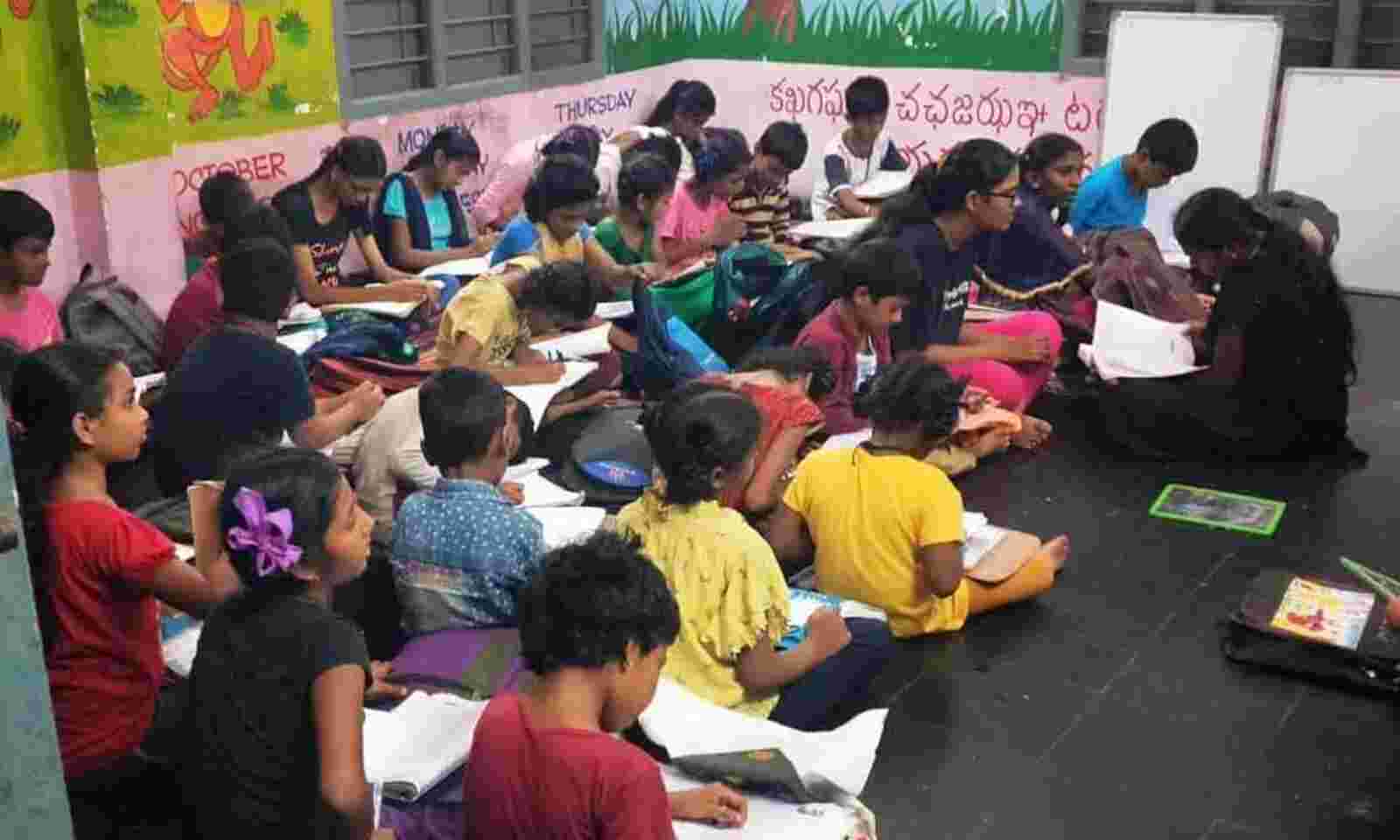S
Shruti Dasgupta
Guest
In a much-debated move, India’s Ministry of Education issues new guidelines and framework for the Coaching Class Industry. Looks like this large-scale unregulated sector will usher in a new era. The government of India seeks to regulate this industry that has long operated without clear guidelines. This proactive step is not only aimed at ensuring the well-being of students but also at introducing a structured framework to an unregulated high-income sector. Let’s discuss the pros and cons of this industry!
The inability of parents to cope with their child’s homework and the minimal hours of school teaching ensures that the Coaching Class Industry flourishes in India.

PC The Hans India
The number of suicides, anxiety attacks, nervous disorders, and depression is on the rise in school-going kids.

PC The Cybernag
The motive behind the move to regulate tuition and coaching centers is positive. However, the implementation of these restrictions raises many concerns among Indian parents. Some of the concerns are as follows:

PC Times of India
The Ministry of Education’s intervention to regulate tuition classes emerges as a positive step. However, the concerns of parents are also a reality of Bharat! By addressing key concerns and setting clear standards, the government should strike a balance between quality education and the well-being of students.
This controversial move may become a moment of celebration if the BJP treats it correctly. The new framework for the Coaching Class Industry is a crucial stride toward ensuring constructive contribution to a student’s academic journey. May parents, students, teachers, and the government find the right middle ground to align with the broader goals of the Indian education system.
The post Revamping Bharat’s Coaching Class Industry appeared first on The Jaipur Dialogues.
Continue reading...
The New Comprehensive Framework for Coaching Classes in Bharat
The Ministry of Education issues Guidelines for Regulation of Coaching Centers 2024, placing student well-being at the forefront. Grounded in #NEP2020 principles, these guidelines prioritize mental well-being, fair practices, and inclusivity. It's a step towards creating a…
— Ministry of Education (@EduMinOfIndia) January 18, 2024
The increased exam stress and ambition of parents has given birth to a giant Coaching industry. Most children enter tuition classes at the same time they start primary education.
The inability of parents to cope with their child’s homework and the minimal hours of school teaching ensures that the Coaching Class Industry flourishes in India.

PC The Hans India
The number of suicides, anxiety attacks, nervous disorders, and depression is on the rise in school-going kids.
Thus, to combat the unregulated nature of tuition centers and to provide respite to students the Ministry of Education came out with clear guidelines.
The following framework is proposed to streamline tuition classes and elevate the overall quality of education:
- Batch Size Regulation: Coaching centers must maintain a reasonable batch size. This move will ensure personalized attention and effective learning environments.
- Qualified Faculty: The framework specifies that only qualified and experienced faculty will be employable in such institutes. The minimum of a graduation degree is proposed to ensure a standard of teaching across coaching classes.
- Transparent Fee Structure: Coaching centers must provide a transparent breakdown of fees. This move prevents hidden charges and ensures parents as well as students are well-informed.
- Age Restriction: Students below 16 years of age or those yet to complete their secondary education are not allowed to enroll. This move safeguards younger students from undue academic pressure.
- Grievance Redressal System: A robust grievance redressal system is a mandatory requirement now. This will provide students and parents with a channel to address concerns and complaints.
- Ban on False Promises: Tuition Classes need to refrain from promising false improvements or milestones of achievements to pull in customers. This ensures that the coaching class industry does not play with the aspirations of students or their parents.
- Mandatory Counselors: Large coaching institutes should provide counseling to students and display a list of phone numbers of counselors. This move ensures mental as well as physical needs of attending students are met.
- Prior Permission: Coaching centers need to apply to regulatory authorities before opening up an institute. This enables the government to track and regulate these unregulated places of student interaction.
Addressing Concerns and Parental Apprehensions

PC The Cybernag
The motive behind the move to regulate tuition and coaching centers is positive. However, the implementation of these restrictions raises many concerns among Indian parents. Some of the concerns are as follows:
- Quality vs. Regulation: Some parents might worry that increased regulation could compromise the flexibility and individualized approaches that coaching centers may offer.
- Financial Implications: Transparent fee structures are beneficial. However, many parents worry about potential fee increases due to the increase in basic facilities that coaching centers would now need to provide.
- Parental Teaching for Under 16 Years: Most parents worry about teaching their kids at home. Sometimes it is a language barrier that prohibits a parent from being part of their child’s school learning. Not everyone is a teacher, thus, not everyone can teach! Thus, a qualified parental teaching model may not work for all families.
- Extra School Fees: Coaching classes will no longer be an option under 16 years of age. Some parents worry that schools will now provide extra classes after school hours for weak students on payment. Consequently, the school fees may skyrocket for parents of slow learners and special needs students.
Fostering a Positive Learning Environment For The Youth Of Bharat

PC Times of India
The Ministry of Education’s intervention to regulate tuition classes emerges as a positive step. However, the concerns of parents are also a reality of Bharat! By addressing key concerns and setting clear standards, the government should strike a balance between quality education and the well-being of students.
This controversial move may become a moment of celebration if the BJP treats it correctly. The new framework for the Coaching Class Industry is a crucial stride toward ensuring constructive contribution to a student’s academic journey. May parents, students, teachers, and the government find the right middle ground to align with the broader goals of the Indian education system.
The post Revamping Bharat’s Coaching Class Industry appeared first on The Jaipur Dialogues.
Continue reading...
